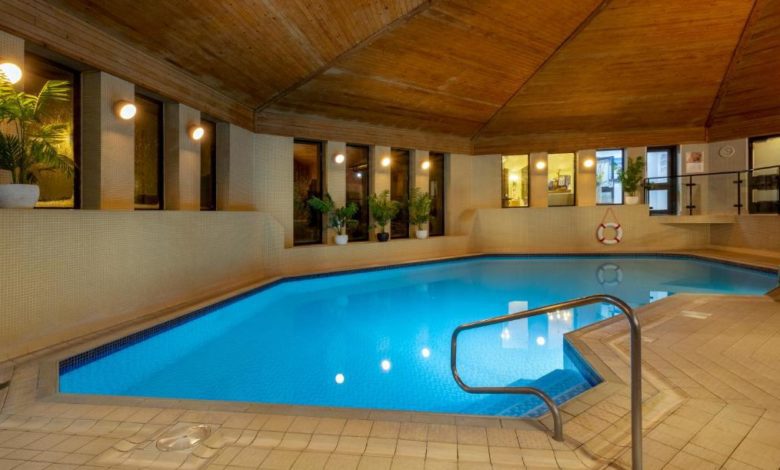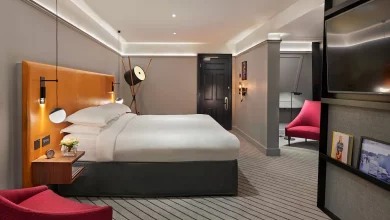Here’s something to captivate your sports tourists
Stephen Carlin, CEO of Sportshotels.com, started a platform dedicated to organising sports teams into hotels with facilities that cater to ‘sports people’, yet it has now grabbed the attention of sports tourists as well. Here, he explains how the platform works and the vast number of people you could reach

Can you tell us about your career leading up to Sportshotels.com?
I’ve been in hotels for about 15 years as one of the founders of one of the largest independent hotel management companies. In the UK today, we operate about 50 hotels, as well as around six hotels that were acquired through investment syndicates over the last eight years. Those new additions to our portfolio have owner representation across those six hotels, so in that way, I’ve been in the hotel business and in property my whole career.
What led to your decision to start this platform?
When guests left reviews of previous bookings, I noticed that all hotels have sports people booking stays, whether it’s teams or organisation bodies, and I started wondering where they came from. It seemed that they found these venues through sports venues local to the hotel and through travel agencies. When you say to a hotelier, “how could they find you? What tells them that you are suitable for them?”, they often don’t know.
My famous example is – one of the hotels was a Holiday Inn Express, and they had absolutely nothing that said they specifically catered for sports. Yet, they regularly got bookings from a cricket team. I said to the manager, “why did they come to you?” and he said, “because they play cricket down the road against the local clubs”. I asked him if he knew why his hotel was chosen over the Premier Inn across the road, and he didn’t know. He eventually came back to me when he found out that the other hotel only served breakfast, whereas his hotel fed them all day long. If you can feed them all day, that’s the sort of thing you want to tell the sports people.
So then, we started doing more research into what sports people want and the number one prerequisite seems to be the hotel’s proximity to the sporting venue, which is pretty obvious. Second after that comes a flexible cancellation policy, because it’s effectively a group booking and the hotel typically wants all the money 30 days in advance. The team doesn’t know how many people are going to arrive on the day – due to injury, dilemmas or Covid – so they want a bit of flexibility. Then there’s things like a team meeting room, things like secure coach parking – all the stuff that you don’t typically see on a website or on a site like booking.com.
We encourage all hotels to list on our platform to emphasise their sporting credentials. We’ve listed about 20 suggestions to inspire hoteliers and everybody thought that it sounds great. Some even said to me that they’re surprised no one has done this before. The big brands will have a sports desk, but they mostly aim for the big touring premierships and premier league kind of teams that can afford to bundle in the transportation and security. However, everyone else is left to fend on their own devices.
That’s where the whole idea came about, so we said we’ll do all the social media, marketing, publicity to reach the eyeballs of bookers and hoteliers to get them on board. Your reason why sports people should book with you is because you speak the language of sports people. That’s how it started and now we have huge support from owners and operators of hotels, and have partnered with about 500 hotels in total.
How does the recently unveiled Sports Desk service work?
Some of the sports teams have said to us that they try to engage with hotels, but they don’t get a response, so we’re here to make sure that the two parties engage. We want to encourage further engagement among bookers and hotels. Sportshotels.com doesn’t take bookings because all of those details – arrival, how many people, laundry arrangements, dietary requirements – are between the sports team and their chosen hotel. We don’t want to get involved in that, but we will help facilitate the deal.
We launched our sports desk to deal with inquiries from sports teams, but now we’ve also got people like spectators who either want to come and watch a football match, and want help finding a suitable hotel. People also want parties or celebrations that are sports orientated, so we help with this as well at the sports desk. These enquiries are then taken to hotels in the area, who then put together the package for the enquiring party to finalise their stay.
Having already partnered with hotel groups such as Hilton and Leonardo Hotels, do you see the platform also working for independent hotels, and why?
Pretty much; we didn’t start partnering with the brands, we started with the owners and the operators. We landed branded hotels almost by default, because that way, at least I don’t have to worry about the quality of my content. Brand standards will dictate the quality of my content instead.
We then reached out and found independent hotels – some of them are owned by big investors, but they operate under different brands sometimes. I have partnered with Hotel Excelsior Venice Lido, whose operator said he was not seen as a sports hotel, despite having a wonderful beach and being situated 10 minutes away from a golf course. He wanted to reach the sports people that want to come for sports leisure breaks, and he is independent (as a hotel) as far as it’s concerned.
We’ve also got the Fairmont in St. Andrews, Gleneagles, as well as Hotel Football in Manchester and the Belfry Hotel and Resort. These are kind of independent, but they might be owned by a big capital fund despite being run as independents with a kind of sporting affiliation. I think when a hotel is independent, we put more value to it, because there’s no need to rely on its brand that dictates the style of the hotel. They can be more flexible with what they can and can’t do.
In your opinion, why is sports travel picking up pace? Will it last, and why?
There was a statistic we found online that says there are 151,000 sports clubs in the UK with an average membership of 149 people – that’s 21 million people. There was also an article in The Times a few weeks ago which said that in France there are 14 million people who belong to sports clubs as members. What I’m saying is that affiliation to sports is huge in the whole world. Not just that – there’s also the trend of health, wellbeing and nutrition, as people want to have more leisure time and focus on health and activity. Visit Britain also released a statistic in 2019 that said that 1.5 million inbound visitors went to a football match in the UK. I think that there’s a lot of momentum here that is unstoppable.
What’s next for Sportshotels.com?
We want to develop the sites more to include the number of hotels we have in every country, and many other features – there’s really no limit. We just got our first handful of hotels in the USA; we’ve had to go into certain countries to develop a domestic market first, which we see is happening there.
We also want to do more for the spectators and participants, obviously, as well as for the hotels. We want to become the go-to destination for sports accommodation, we want to say to sports people, “we speak your language, so be a part of our member hotels” – all the while educating these hotels and helping them process things efficiently to provide a good service, be aware of what the sports people want.
The other thing we are doing – which is totally new – is that we are going to arrange events. We’ve got our first jiu jitsu competition in a three-day camp. We’re reaching out to the hotels nearby and all the sports people, so now we’re going to start encouraging yoga retreats or dancing. In other words, we are thinking of the lesser sports and what we can do more with them.
In short, our next step is streamlining and expanding what we do.









